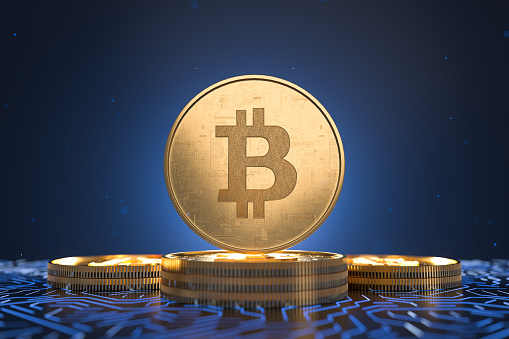Luck Meets Code: The Rise of Bitcoin Lottery Miners
Luck Meets Code: The Rise of Bitcoin Lottery Miners
Blog Article
In the ever-evolving landscape of copyright, the intersection of luck and technology has given rise to an intriguing phenomenon: the bitcoin lottery miner. As the popularity of Bitcoin continues to grow, so does the creativity of its community members in finding innovative ways to engage with this digital currency. Among these innovations, bitcoin lottery mining stands out as a unique blend of chance and skill, drawing in both seasoned miners and newcomers alike.
The concept is simple yet captivating. Participants attempt to solve complex mathematical puzzles in a bid to win Bitcoin prizes, much like a traditional lottery. However, instead of purchasing a ticket, miners use their computational power to compete for rewards, turning what could be a mere game of luck into an entertaining experience driven by code. This emerging trend not only showcases the versatility of blockchain technology but also highlights the dynamic nature of the copyright space.
Understanding Bitcoin Lottery Mining
Bitcoin lottery mining is an innovative fusion of copyright mining and the concept of lottery games. In this unique model, miners compete to solve complex mathematical problems, similar to traditional mining operations. However, instead of solely earning rewards in the form of newly minted bitcoins, these miners also have the chance to win lottery prizes. The process encourages participation by adding an element of chance to the otherwise predictable world of mining, appealing to both seasoned miners and newcomers eager for a shot at a big win.
The mechanics of bitcoin lottery mining typically involve miners contributing their computational power to a common pool. As they mine, they not only aim for bitcoin rewards generated through successful block solutions but also accumulate tickets for a lottery drawing. These tickets are often awarded based on the amount of computational power contributed or the number of hashes generated, introducing a game-like aspect to the mining experience. This model has gained traction in the copyright community as it combines the motivation of earning bitcoins with the thrill of a potential lottery jackpot.
Moreover, the rise of bitcoin lottery mining has sparked discussions about its sustainability and fairness. Critics argue that the lottery aspect could incentivize less efficient miners, diluting the profitability for those who invest heavily in hardware. On the other hand, proponents contend that this approach democratizes opportunities in the mining space, allowing luck to play a role alongside technical expertise. As the landscape of copyright evolves, the future of bitcoin lottery miners may hinge on striking a balance between chance and skill in the mining process.
Best compact mining equipment for Bitcoin
The Mechanics of Luck in Bitcoin Mining
Bitcoin mining is fundamentally a game of chance, where miners compete to solve complex mathematical problems. Each miner invests significant computational resources to find a valid hash that meets the network's difficulty target. This process, while deterministic in nature, incorporates a heavy reliance on luck, as miners are essentially trying to guess a number that will produce a hash starting with a specific number of zeros. The probability of winning can be thought of as similar to buying a lottery ticket; every attempt has an equal chance, but the odds can be quite steep.
In the realm of bitcoin lottery miners, the role of luck becomes even more pronounced. These miners often pool their resources together, thereby increasing their chances of unlocking a block and reaping the rewards. Within this cooperative framework, the elements of luck vary for each miner based on their contribution to the pool and the relative computational power they provide. This means that while some miners might hit the jackpot more consistently due to greater processing power, others may experience longer dry spells, underscoring the unpredictable nature of luck in this digital landscape.
The intersection of luck and skill in bitcoin mining creates a unique dynamic for those involved. While technical expertise and investment in hardware can enhance a miner's chances, the inherent randomness of the mining process ensures that luck remains a crucial factor. As more enthusiasts and businesses enter the bitcoin mining sphere, understanding this balance between luck and skill can lead to more strategic decision-making, whether one is investing in equipment or participating in collaborative mining ventures.
Future Trends in Bitcoin Lottery Mining
As technology continues to evolve, the landscape of bitcoin lottery mining is set for significant transformation. Emerging blockchain technologies are paving the way for more secure and efficient lottery systems. Enhanced security measures, such as advanced cryptography and smart contracts, can reduce the risk of fraud, making lottery participation more attractive to users. This will likely spur greater interest and investment in the sector, as participants will feel more confident in the integrity of the lotteries.
Moreover, gamification and innovative designs in lottery platforms are anticipated to make bitcoin lottery mining more engaging. By incorporating elements typically found in video games, such as achievements, rewards, and interactive systems, operators can entice a broader audience. This approach not only enhances user experience but also encourages frequent participation, creating a bustling ecosystem that thrives on excitement and engagement.
Finally, regulatory developments may shape the future of bitcoin lottery mining. As governments around the world start to recognize the potential of blockchain and cryptocurrencies, clearer regulations are likely to emerge. This could lead to the legitimization of bitcoin lottery miners and attract mainstream consumers. With proper regulation, bitcoin lottery mining could evolve into a widely accepted form of entertainment and investment, blurring the lines between gaming and financial markets.
Report this page
